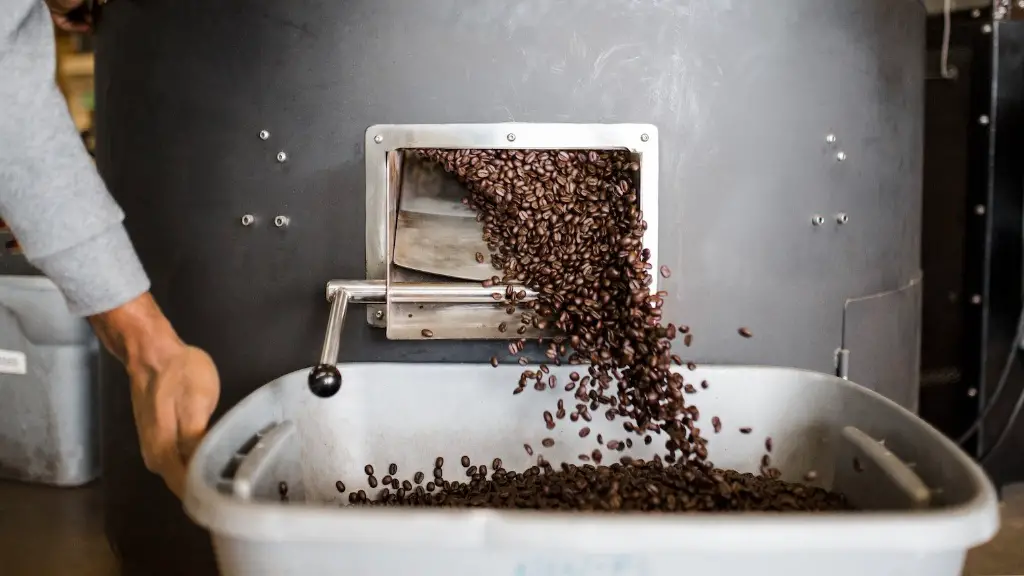Introduction
Coffee is one of the most popular beverages in the world. It’s estimated that 400 billion cups of coffee are consumed annually. Most of us have experienced that familiar jolt of energy almost immediately after taking our first sip, and for many of us, coffee has become a daily routine. But does drinking coffee really give you diarrhea? And how much coffee is too much?
Studies On Coffee And Digestive Issues
Scientific studies have examined the potential side effects of drinking coffee, including its effects on the digestive system. One recent study published in the British Journal of Nutrition looked at the effects of coffee consumption on gastrointestinal functions. The researchers conducted a meta-analysis of previous studies and found that drinking up to four cups of coffee per day had no connection to the risk of developing diarrhea.
However, the study did find that people who drank more than four cups per day were at an increased risk of developing this symptom. The study concluded that high coffee consumption—more than four cups per day—could lead to increased acidity in the gut, which could in turn lead to digestive issues like diarrhea.
Potential Causes Of Diarrhea
Coffee is not the only beverage that can potentially lead to diarrhea. Other factors can also play a role, such as the food we eat and our overall dietary habits. For example, a diet that is high in sugar, spicy foods, and processed foods can put extra strain on the digestive system and potentially lead to gastrointestinal issues like diarrhea.
In addition, conditions like irritable bowel syndrome (IBS) can be triggered by certain foods or beverages, including coffee. IBS is a common digestive disorder that is characterized by abdominal pain and changes in bowel habits, often leading to diarrhea. It is estimated that 10–15% of the population suffers from this condition, so it is important to be aware of its potential triggers.
Caffeine And Gastrointestinal Issues
The caffeine in coffee is also a potential trigger for digestive issues. Caffeine is a stimulant, and when consumed in high amounts, it can cause upset stomach and abdominal cramps. It can also lead to diarrhea and more frequent bowel movements. Caffeine also increases the production of stomach acid, which can worsen existing digestive issues.
Some studies have suggested that for those who suffer from IBS, it is best to limit caffeine consumption to less than 200mg per day, which is equivalent to roughly two cups of coffee. Those who already consume more than 200mg per day should be aware of their own body’s response to caffeine, and if they experience symptoms like abdominal pain and Diarrhea, they should consider reducing their caffeine intake.
Long Term Effects Of Coffee Consumption
Despite the potential digestive issues associated with coffee consumption, there are also benefits. Studies have shown that coffee consumption can be associated with a reduced risk of certain diseases, such as Type 2 diabetes. In addition, regular coffee consumption has been linked with increased energy, improved focus, and alertness.
It’s important to remember that like with any food or beverage, moderation is key. Establishing a healthy limit based on your own body’s reaction is the best way to ensure that your coffee consumption is not having a negative impact on your health.
Coffee Substitutes
If you are having digestive issues after drinking coffee, it’s important to try to identify the source of the problem. If it’s the caffeine, there are several coffee substitutes available, such as herbal teas or decaf coffee. These alternatives can provide the boost of energy without the digestive issues.
The Benefits Of Natural Additives
In addition to coffee substitutes, there are also natural additives that can help to improve digestive health. Adding probiotics to your diet can help to restore balance in the gut, which can reduce symptoms like abdominal pain and diarrhea. Other supplements, such as ginger and peppermint, can also help to soothe the digestive system and reduce inflammation.
The Bottom Line
It is possible that drinking too much coffee can lead to diarrhea, but it is important to consider potential other causes as well. High caffeine consumption, an unbalanced diet, and underlying digestive issues can all lead to digestive problems. It’s important to be mindful of the amount of coffee we consume, as well as any other risk factors in order to make sure we are not having a negative impact on our health.
Lifestyle Adjustments
Making adjustments to your lifestyle can also be important for improving digestive health. Eating more fresh fruits and vegetables can help to reduce inflammation in the gut, while exercising regularly can also help to reduce stress and improve overall health. It’s also important to stay hydrated, as dehydration can lead to digestive issues as well.
The Role Of Fibre
Fibre plays an important role in digestive health, as it helps to keep the intestines healthy and functioning properly. Eating foods that are high in fibre such as fruits, vegetables, and whole grains can help to reduce the risk of digestive issues like diarrhea.
Conclusion
Ultimately, coffee can be a healthy and enjoyable part of a balanced diet. But being mindful of the potential side effects is important in order to ensure that it is not having a negative effect on digestive health. Eating a healthy diet, getting regular exercise, and staying hydrated are all important for good digestive health, and can help to reduce the risk of digestive issues.


